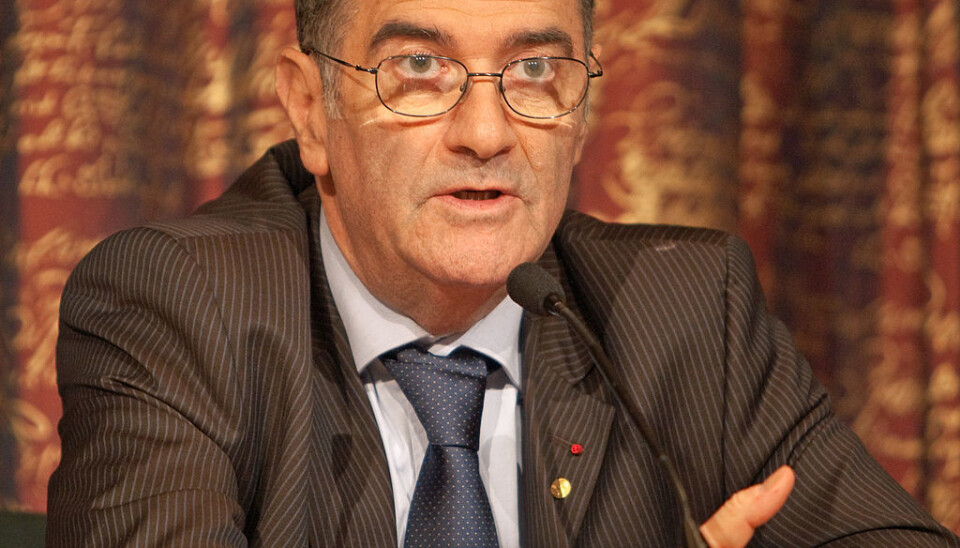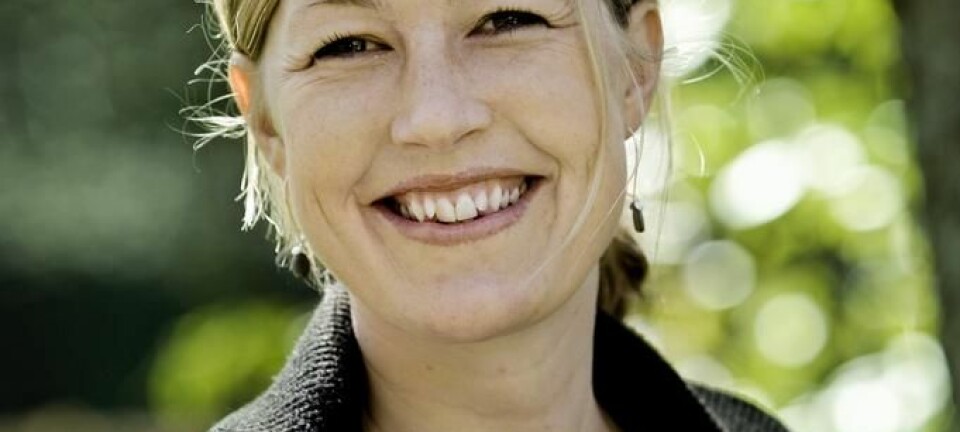
Nobel laureate: science is moving in a dangerous direction
Science has taken a wrong turn and forgets to prioritise basic research, says Nobel laureate and quantum physicist Serge Haroche.
If science is to move forward, researchers must be free to prioritise basic research.
That’s the message from the French Nobel laureate and quantum physicist Serge Haroche, who thinks modern society isn’t dedicating enough resources to research fuelled by curiosity.
“The balance has tilted, making us focus too little on basic research, and I think that’s dangerous,” says Haroche, who holds the Chair of head of Quantum Physics at the French university Collège de France. “We have to protect basic research if we’re to have scientific breakthroughs in the future.”
He was one of the keynote speakers at the Euroscience Open Forum, ESOF, Europe’s largest interdisciplinary science conference, which was held in Copenhagen in June.
Protect basic research
In his speech, Haroche stressed the importance of basic research to society.
Basic research is the branch of research that aims to understand and gain new knowledge about the fundamentals of a subject -- for instance how atoms or the cells of the body are constructed. The goal is to gain more insight without necessarily producing new inventions or finding solutions to a certain problem.
It’s the complete opposite of applied research -- or strategic research -- which is directly aimed at finding practical solutions to specific problems.
“We have to protect basic research from the development that’s currently taking place in society. More and more importance is being attached to applied research, which is aimed directly at the needs of society, and it’s getting harder and harder for young people to get to do basic research.”
“But we can’t just focus on applied research, because research is characterised by the fact that no one can know where the major discoveries of the future will be made,” says Haroche, who was awarded the Nobel Prize in physics in 2012.
All breakthroughs come from basic research
Serge Haroche points out that a lot of the scientific breakthroughs that we surround ourselves with in our everyday lives, such as medicine, computers and other technologies, have only come into being because researchers of the past have done the basic scientific legwork.
“Historically, the major technological breakthroughs have come from basic research which wasn’t originally conducted for that purpose -- progress just happened, because researchers were curious about nature,” he says.
“In that way they discovered new phenomena, and it turned out that these phenomena could be put to good use. But applicability wasn’t what the researchers that made the discovery had in mind,” says Haroche.
But in a world marked by financial crisis, climate changes and all sorts of other problems, some might think that spending millions of dollars on basic research that’s only driven by curiosity is a luxury we can’t afford. Isn’t it possible to achieve a major scientific breakthrough by focusing one’s research on the challenges the world is facing?
“Naturally, I know that society has needs and challenges waiting ahead, but you have to understand that the answer to all of those challenges largely comes from basic research. That’s why we need to protect basic research. Of course that doesn’t mean that we should stop doing applied and goal-oriented research -- it’s a part of science, but I’m afraid we’ve lost our balance and focus too much on applications of research,” says Haroche.
“Throughout history a lot of people have tried to focus research towards a specific purpose without any great success. For instance, in the 1970s the United States tried to develop a grant for research that was aimed at curing cancer. That research wasn’t a great success – it failed. Of course there’s been a lot of progress when it comes to fighting cancer, but those steps forward were based on knowledge supplied by basic research.”
“And I think a lot of areas of research are like that,” he says.
Good research takes time
Haroche says politicians are partly to blame. They need to understand and accept that scientific progress doesn’t happen overnight, often requiring decades of legwork, he says.
“The major problem is that there are two timescales. There’s the timescale of science, which is a long-term scale, and then there’s the politicians’ timescale. Politicians want to react very quickly, because they have to take into account that they may have a very short term of office.”
“We need to find a way to make those two timescales work together,” says Haroche.
Experience made light particle research possible
Haroche’s own research is a good example of how many years of legwork -- and curiosity about the world’s smallest components -- can lead to scientific breakthroughs.
When Haroche was awarded the Nobel Prize in physics, the Nobel committee stated that it was due to his “ground-breaking experimental methods which make it possible to measure and manipulate quantum systems.”
Specifically, what Haroche is able to capture and measure is light particles, known as photons. However, at the beginning of his career photons hadn’t even been his main interest, Haroche explains.
“That I should move in that direction wasn’t at all something I decided back then, 30-40 years ago. It was something that happened as my research developed and I got more and more tools that made it possible,” he says.
Translated by: Iben Gøtzsche Thiele












